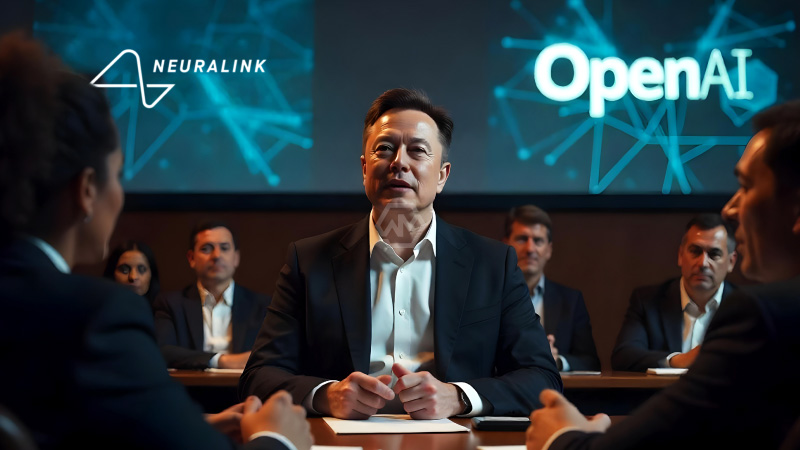- Neuralink successfully implants its brain chip in a third patient, with plans for 20-30 more in 2025.
- Musk accuses OpenAI and Microsoft of anticompetitive practices in an ongoing lawsuit.
- FTC and DOJ support Musk’s claims, spotlighting potential AI industry misconduct.
Neuralink, Elon Musk‘s brain-computer interface startup, has implanted its innovative device in a third patient, marking significant progress in its mission to treat paralysis and ALS.
With FDA-approved studies underway, the devices empower patients to control external gadgets, like computers or robotic arms, using their thoughts. Musk has ambitious plans to expand this program with 20 to 30 more patients in 2025.
Elon Musk Challenges OpenAI While Neuralink Pushes Boundaries
In parallel, Musk’s lawsuit against OpenAI and Microsoft has drawn the attention of U.S. regulators. He alleges OpenAI enforced investment restrictions and shared board members with Microsoft, which may constitute antitrust violations. The FTC and DOJ have weighed in, noting the legal significance of these claims, further spotlighting regulatory concerns over AI partnerships and fair competition.
Elon Musk’s legal battle against OpenAI and Microsoft has intensified, with allegations of antitrust violations and restrictive investment practices. Musk argues that OpenAI shared board members with Microsoft, raising concerns about conflicts of interest. These claims have prompted the FTC and DOJ to analyze potential misconduct, highlighting growing scrutiny in the AI industry.
Regulators pointed out that even after board members leave, they may retain sensitive competitive information. This has added weight to Musk’s arguments, emphasizing the need for strict ethical standards in AI governance. Musk also accuses OpenAI of facilitating a boycott against rival AI firms, a claim that the DOJ and FTC consider legally viable.
This case sheds light on the challenges of balancing innovation with ethical business practices in a rapidly advancing field. It also raises important questions about the responsibilities of AI companies in maintaining fair competition and transparency.
Musk’s dual ventures reflect his drive to innovate in both technology and ethics, pushing boundaries in neuroscience while challenging the AI industry’s regulatory framework.
“Regulators must prioritize transparency and fair competition to ensure innovation benefits society without stifling opportunities.”



